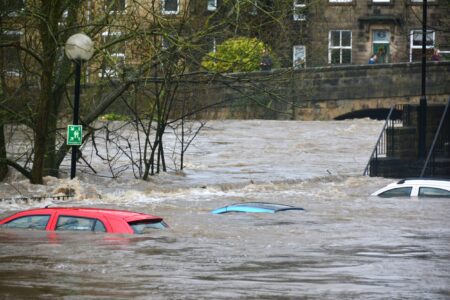Province responds to allegations of diminished H1N1 vaccine supply
Ed Note: the following is a press release from the B.C. provincial government, issued Oct. 30:
Despite unexpected delays in the manufacture of pandemic H1N1 influenza vaccine in Canada, all British Columbians who need or want the vaccine will be able to receive it before the end of the year as has been said previously, Minister of Healthy Living and Sport Ida Chong and Provincial Health Officer Dr. Perry Kendall reiterated today.
The federal government has advised all provinces, including B.C,. that they won’t be receiving as many doses of pandemic vaccine in the next few weeks as anticipated. Nevertheless, the provincial rollout will continue with a significant number of doses over the next week, and B.C. has ordered more than four million doses of the vaccine, more than enough to cover the province.
“Based on the information the federal government has conveyed, every British Columbian who needs and wants the vaccine will be able to receive it before the end of this year,” said Chong. “The province has a plan in place to first deliver the vaccine to those most at risk from serious consequences of H1N1 infection, and we will continue to implement that plan.”
B.C. began the largest immunization campaign in its history earlier this week with the vaccine made available to the first groups of high-risk residents – people under 65 years of age with chronic health conditions, pregnant women and individuals, including First Nations living on reserves, who reside in remote or isolated areas.
Beginning next week, eligibility to receive the vaccine will be extended to include front-line health care workers, children between six months and five years of age, and household contacts of babies less than six months old and of immunocompromised people. Not everyone in these groups will be immunized in the second week of the program. Each region will need to gauge supply and demand, and there may be some differences in timing because of these variables.
As a result of smaller than expected shipments of the vaccine, further distribution will include a phased approach. Vaccination of health care workers will be prioritized to first cover those deemed to require it most in order for critical health care services in B.C. to be maintained. Not all health care workers will be able to receive the vaccine immediately but, as supplies increase, all health care workers who want the vaccine will get it.
In addition, health authorities that had been running seasonal influenza clinics for seniors may temporarily be suspending those clinics, depending on local logistics, in order to focus on delivering the H1N1 vaccine to those most at risk. Seniors’ influenza clinics will resume later in November, the time of year that they are normally held. This change isn’t expected to have any impact on the rate of seasonal influenza among seniors this winter.
To date, B.C. has received nearly a half-million doses of the adjuvanted H1N1 vaccine and is expecting a shipment of another 350,000 doses for distribution next week. In addition, the province is scheduled to receive 58,000 doses of adjuvanted and 25,000 of unadjuvanted vaccine from Canada’s pandemic H1N1 vaccine manufacturer GlaxoSmithKline – the latter specifically for pregnant women – late next week.
Health authorities in B.C. are receiving vaccine shipments based on their respective populations. Each health authority has implemented a vaccination plan which best suits its geographical area and population densities.
“We acknowledge that there may be concern among the public that the H1N1 vaccine is not getting to B.C. and other provinces as quickly as it
should,” said Kendall, “but I am confident that the federal government and GlaxoSmithKline are doing their best to ensure that the vaccine is manufactured and distributed as quickly as possible. There have been similar challenges in the U.S. and other countries as well. In the meantime, our provincial health authorities will tailor their delivery plans to ensure that the vaccine we do have is used in the best possible way.”
“Members of the general population who don’t fall into the high-risk categories identified in the phased implementation approach will be able to receive the H1N1 vaccine as soon as supply is sufficient but not at this time,” said Dr. Monika Naus, medical director of immunization programs at the B.C. Centre for Disease Control, an agency of the Provincial Health Services Authority. “We ask that healthy individuals allow those who need the vaccine most at this time to get it first. In the meantime, we remind everybody that basic infection control measures remain a powerful weapon against influenza infection and spread. Wash your hands properly and often, cough or sneeze into your sleeve or a
disposable tissue, and remain at home if you are sick.”

























Comments